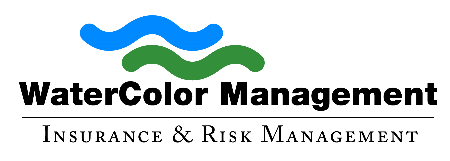
If a drinking water source has too much calcium carbonate in it, your water treatment insurance clients may soften it so that soaps continue to work efficiently and minerals do not build up within the pipes. Generally, water experts consider water that has less than 1 grain of calcium per gallon soft, while water that has between 7 and 10.5 grains per gallon is hard.
Water softening is not always necessary because calcium carbonate does not create health risks. If your clients wish to soften their water and also clean their wastewater, though, they should be aware of certain concerns. Here are the answers to insurance agents’ top questions about best practices for taking care of water cleaning and softening simultaneously.
Can You Have a Water Softener With a Septic Tank?
Water softeners do not hurt septic tanks as long as your clients manage both systems properly. When your clients use water softeners, they do not need to use as much soap, which makes it easier for their septic systems to operate.
Can the Water Softener Discharge Damage My Septic System?
Water softeners produce saltwater discharge, and some people worry that the influx of sodium ions will keep their septic systems from properly separating into sludge and clean water. Thankfully, this discharge is too low in volume to disturb the chemical balance of your water treatment insurance clients’ septic systems. At the same time, it’s best to avoid directly draining the discharge into the septic system.
How Often Do You Need To Service Your Water Softener?
Maintenance routines vary depending on the water softener manufacturer, but your clients should stick carefully to the recommended schedule. Their local environmental oversight board can advise them on the frequency of service appointments.
How Can You Find Expert Advice on Septic Tanks and Water Softeners?
Sometimes it’s hard to know whose advice to trust when it comes to managing a septic tank and water softener together. The National Onsite Wastewater Recycling Association and the Water Quality Association are both reputable sources, and they offer programs to connect your clients with maintenance experts in their area.
What Products Should Not Be Used With Septic Tanks and Water Softeners?
Although your water treatment insurance clients can use septic tanks and water softeners together, they should avoid certain products. Drain cleaners, bleach, paint, and fossil fuels clog both systems and disrupt their chemical composition. Prescription medications and fertilizers also pose issues because they can seep from the septic system to the local groundwater supply.
Do Any Other Inspections Need To Happen?
If your clients’ water systems leak, their septic systems and water softeners will have to work harder than usual to clean and soften the water. As a result, checking for leaking pipes or broken valves is essential.
About Watercolor Management
Watercolor Management has insured the water industry for over 30 years. Our policies include unlimited defense cost coverage in the event of a lawsuit against you. Call us at (855) 929-0824 or email info@watercolormanagement.com for a quick quote for your Water Business Professional, Products/Completed operations, Pollution and General Liability Insurance.




